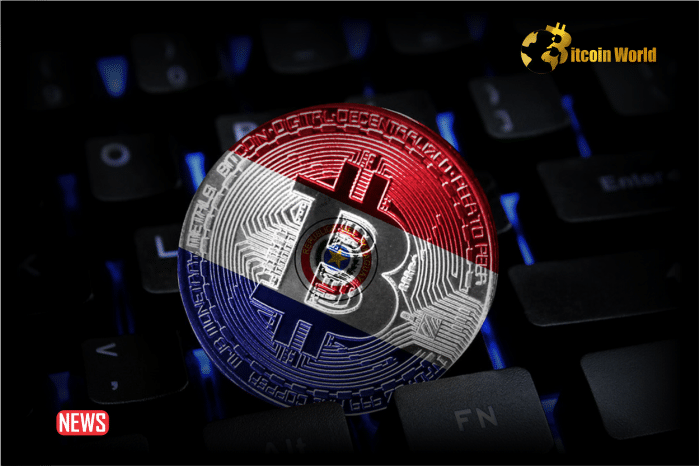- The economy of Paraguay could lose more than $200m annually if Paraguay’s lawmakers pass a recently introduced bill to ban crypto mining in the country.
Lawmakers introduced the draft bill on April 4, claiming illegal cryptocurrency mines are stealing power and disrupting the country’s electricity supply.
If passed, the ban would last 180 days or until new laws are enacted and the national power grid operator can ensure it can supply sufficient energy.
But a ban on lawful miners operating in the region could prove costly for the South American country, according to Hashlabs Mining co-founder and chief mining strategist Jaran Mellerud:
“Banning Bitcoin mining could cost Paraguay more than $200 million a year, assuming the country has 500 megawatts of legal miners paying $0.05 per kilowatt-hour in operating expenses.”
Markets of this size aren’t common in Paraguay either, which boasts a rather small population of 6.8 million people and the 94th-largest gross domestic product in the world at $41.7 billion, according to Worldometer, citing 2022 data.
See Also: Paraguay Proposed Temporary Crypto Mining Ban As Illegal ‘Farms’ Cripple Grid
Bitcoin mining has provided a “significant, positive contribution to Paraguay’s trade balance” up until this point, and a ban could dent the economy, argues Jaran Mellerud.
Bitcoin mining firms currently need to register and receive authorization from the Paraguayan Ministry of Industry and Commerce.
If passed, the bill may impact one of the industry’s largest players, Marathon Digital Holdings, which started deploying 27 megawatts around the Itaipu hydroelectric power plant last November.
Paraguay 🇵🇾 has lost the plot. A newly proposed bill aims to temporarily ban (180 days or until it is "regulated") Bitcoin mining in Paraguay, as well as ban the storage and trading of cryptocurrencies.
One of the arguments of the law is that "there are many illegal bitcoin… pic.twitter.com/2jIZ4lqNBh
— BowTiedMara (@BowTiedMara) April 4, 2024
The Itaipu Dam has become a popular site for miners to set up, as it supplies all of Paraguay’s local electricity needs and leaves a large amount of excess electricity to tap into.
This excess electricity has historically been exported to Brazil at low prices. However, Mellerud noted that a wave of Bitcoin miners has swooped in at slightly higher prices in recent months.
But lawmakers say there have been 50 cases of interrupted power supply linked to cryptocurrency miners illegally tapping into these electricity sources since February alone.
The country’s National Electricity Administration estimates each cryptocurrency mining operation has caused damages and losses up to $94,900 and that total annual losses in the Alto Paraná area — where the Itaipu power plant is based — could be up to $60 million.
“Illegal operations can be harmful to the grid if it draws too much electricity from low voltage lines,” Mellerud acknowledged.
A similar situation played out in Kazakhstan a few years ago, ultimately leading to the Kazakh government cracking down on the industry and kicking illegal mining operators out of the country.
Mellerud previously said that Paraguay and Argentina would take in an influx of United States-based miners looking to expand or even migrate to the energy-rich nations due to lower electricity costs.
Paraguay's readying a 100 MW substation that will power ~20,000 new #Bitcoin rigs. This will empower local talent, job creation, and a new industry!🤝⛏️
This is how green, renewable and 14 GW of power looks like from the Itaipu Dam.♻️ 🇧🇷 🇵🇾 pic.twitter.com/DPmKFrlfiy
— Luxor Technology 🟧⛏️ (@LuxorTechnology) May 11, 2023
The controversy in Paraguay comes as Bitcoin miners prepare for the upcoming Bitcoin halving event expected to take place on April 20, which will slice miner rewards from 6.25 Bitcoin ($434,000) to 3.125 BTC ($217,000).
Disclaimer: The information provided is not trading advice. Bitcoinworld.co.in holds no liability for any investments made based on the information provided on this page. We strongly recommend independent research and/or consultation with a qualified professional before making any investment decisions.
#Binance #WRITE2EARN















